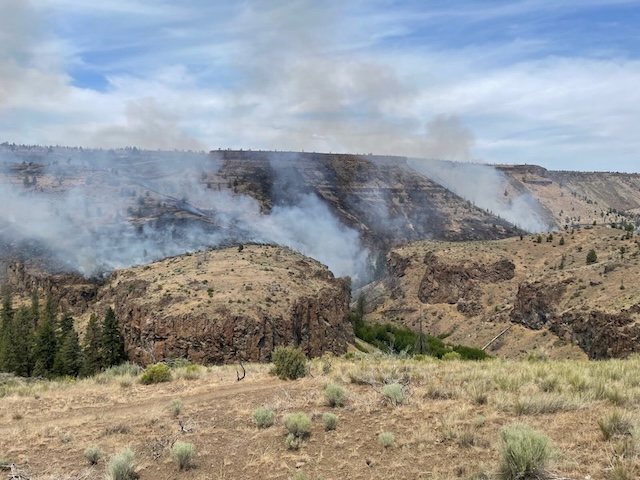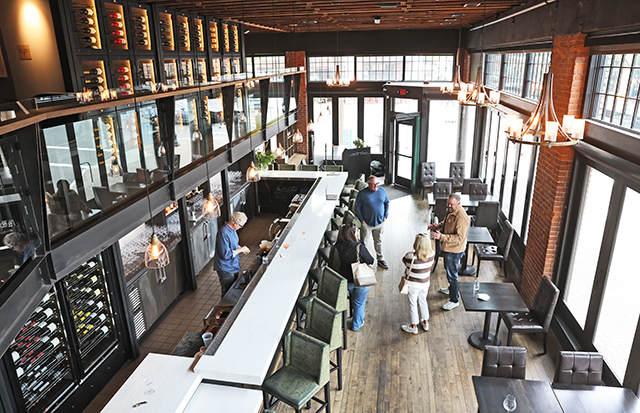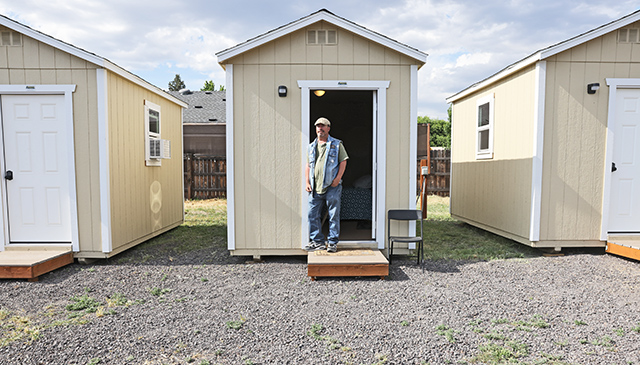Turned away
Published 5:00 am Sunday, October 2, 2005
Ann Allanach retired to Bend in June with her husband and 80-something-year-old parents because she wanted to live in Oregon and was under the impression that Bend had an extensive health-care system to serve her family’s needs.
The first week after they arrived from California, Allanach’s mom, a four-time cancer survivor, came down with a virus and needed medical attention. Picking up the phone to find a family practice physician in their new hometown, Allanach realized she may have made a mistake in making the move.
”I started calling around and nobody would take them,” Allanach, 61, said of her parents who are both on Medicare, the federal health insurance program for seniors. ”I was so angry when I was first trying to find a physician.”
Very few primary-care physicians in Central Oregon will take on new Medicare patients, because, they say, the amount the federal government pays to reimburse doctors for treatment does not cover the cost of care. The Bend community has tried to answer the problem of access to health care for Medicare, Medicaid and uninsured patients by opening two clinics to serve that population – Volunteers in Medicine and the Community Clinic of Bend.
In the short time they have been open, both clinics are already bursting at the seams, working to expand capacity and say they can’t keep up with the need in the community.
”I continue to hear of patients unable to obtain health care,” said Dan Peddycord, administrator of the Des-chutes County Health Department. ”They are doing a great job, but the need is far larger than those two clinics can begin to meet.”
Uninsured and underinsured
It’s hard to say for sure exactly how many people in Deschutes County have trouble accessing health care, Peddycord said.
According to U.S. Census data, 18 percent to 20 percent of Deschutes County residents are uninsured.
Add to that a large group of Medicare and Medicaid, or Oregon Health Plan, members and, Peddycord said, access issues likely affect a minimum of 30 percent to 35 percent of residents.
”We have a wonderful health-care system for those who can afford to buy it,” Peddycord said. ”We have a lousy health-care system for those who cannot afford to buy it. We are realizing a growing number of our citizens cannot afford it.”
Since Volunteers in Medicine opened 18 months ago, it has completed more than 7,500 patient visits, said Executive Director Christine Winters. The clinic serves only uninsured patients with annual incomes less than 200 percent of the federal poverty level, or about $38,000 for a family of four. But many patients between 200 percent and 250 percent of the federal poverty level try to access care there and have to be turned away.
Volunteers in Medicine provides basic primary health care, some dental care and some mental health case work. But, Winters said, more volunteer physicians, dentists and mental health professionals are needed before the clinic can take on more patients.
”Basically, we cannot meet the mental health or dental need,” Winters said, at a recent Des-chutes County Public Health Advisory Board meeting. ”Not even close.”
The Community Clinic of Bend, which opened in April, is seeing about 500 patients a month, said Lynn Martin, executive director of Ochoco Health Systems, parent organization of the clinic. The community clinic is a Federally Qualified Health Center and receives annual federal funding to serve uninsured, underinsured and private pay patients.
In just six months, the community clinic has already stopped taking new uninsured patients. Almost 50 percent of the clinic’s patients are uninsured and, Martin said, that number is too high.
”We have to monitor this closely. Our grant will subsidize, but it doesn’t pay our total costs,” Martin said. ”Unlike Volunteers in Medicine, we have to bring in other payers.”
Most Federally Qualified Health Centers rely on Medicaid dollars to subsidize costs. That population helps the Community Clinic of Bend, but Martin said she has also been surprised at the number of Medicare patients using the clinic.
”This is the only (Federally Qualified Health Center) that I know of that has about 35 percent Medicare patients,” Martin said. ”Nationally, it’s more like 10 percent.”
According to the Centers for Medicare and Medicaid Services, Deschutes County has 55 family practice physicians and 43 internal medicine physicians who accept Medicare payments. Yet, most of those physicians are no longer adding new Medicare patients to their practices – they continue to serve their existing Medicare patients – causing people to turn to the Community Clinic of Bend for help.
Allanach called the Community Clinic of Bend when her mom was sick but was told she couldn’t be seen for several months. She ended up taking her mom to Urgent Care and said she would be willing to use the St. Charles Medical Center-Bend emergency room if necessary, even though it is an expensive option.
”We like Bend,” Allanach said. ”There is a nice big hospital. There are many specialties. They have great physicians, but they have got to do something with this primary-care situation.”
Martin agrees that Central Oregon is facing a Medicare crisis, but said the community clinic and Volunteers in Medicine cannot be the only answer.
”We never said we are here to solve the entire problem,” Martin said. ”This is a major community problem. It’s not just our problem.”
Expansions and solutions
Just last week the Community Clinic of Bend added a nurse practitioner and plans to add a part-time internist this month. It is also adding patient rooms and plans to be at full capacity by the end of the year.
When the clinic reaches that point, Martin said, it should be able to serve 5,000 patients a year. Volunteers in Medicine is on target to serve 7,000 patients next year, Winters said.
The combined total of 12,000 patients doesn’t come close to meeting the 19,000 uninsured and Oregon Health Plan patients in Deschutes County reported in recent U.S. Census data, Martin said.
”That is not including the thousands on Medicare and there is no access for them,” she said. ”I want to be clear that there is great need in this community.”
Some new Medicare patients have managed to find physicians to serve them by joining Medicare Advantage plans like Clear Choice Health Plans. Allanach signed her parents up for Clear Choice, even though the premium is $97 a month and is higher than traditional Medi-care’s roughly $70-per-month charge.
Physicians are willing to take new Clear Choice patients because the reimbursement rate is higher than traditional Medicare and they don’t have to deal with as much paperwork. On average, Clear Choice reimburses 19 percent more than traditional Medicare, said Pat Gibford, president and chief executive officer of the Bend-based company.
For uninsured patients, there are fewer options.
Fran Chang, director of nursing and clinical services at Volunteers in Medicine, said she spends much of her time trying to patch together help for people who don’t qualify for their services. She calls in favors from specialists throughout town and keeps a running list so she doesn’t hit up the same people time and again.
She told the story of a 22-year-old woman who needed all of her teeth pulled because of infections. The woman didn’t want to lose her teeth, Chang said, out of fear that no one would hire her. A dentist volunteered to pull the woman’s teeth and donated a set of dentures to her cause.
A different patient complained of a pain in her chest, Chang said.
”She had pain for five years, but was afraid to go to the doctor. Her husband was ill and she didn’t want another bill,” Chang said. ”She had breast cancer that had spread to the bone. We got her surgery, and assistance for prescriptions.
”It makes a huge difference in some people’s lives,” she said.
Without more volunteer physicians, Chang said, Volunteers in Medicine simply can’t serve more patients than it already is. Like the Community Clinic of Bend, Volunteers in Medicine has a three-week waiting period for general provider appointments and an eight-week wait for specialty appointments now.
”There are great physicians out there in our community who open their doors to the underserved. There is a great deal of charity care. That’s a wonderful thing. But even with all of that, it just scratches the surface,” Peddycord said. ”The reality is, that we need five more of each of (the clinics) to really make a noticeable, big dent.”
MEDICARE FACTS
* Many physicians limit Medicare patients because they are reimbursed less for services. For instance, Clear Choice Health Plan reimburses about 19 percent more than traditional Medicare.
* Deschutes County has 55 family practice physicians and 43 internal medicine physicians who accept Medicare payments, according to Medicare. But many of those are turning away Medicare patients.
* Many Federally Qualified Health Centers have about 10 percent Medicare patients. Bend’s center has about 35 percent.






